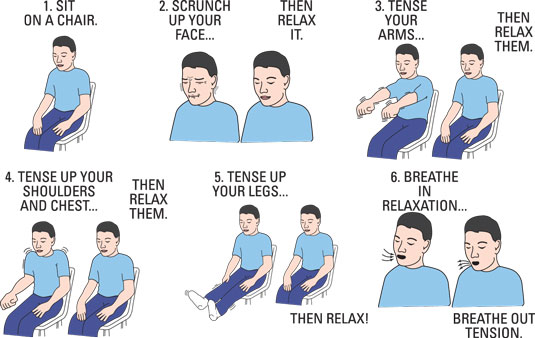Managing Stress
The two extremes are that some people can handle major upsets without batting an eye, while others become distressed at the slightest deviation from their normal routine. It is important to remember that in small doses, stress can be a good thing. It can give you the push you need, motivating you to do your best and to stay focused and alert. Problems accumulate only when stress is constant. Here we tell you about How to Get De-stressed?
The specific signs and symptoms of stress vary from person to person, but the potential to harm your health, emotional well-being, and relationships with others is real. Stress affects the mind, body, and behavior in many ways apart from the digestive tract, including weight fluctuations, head and muscle aches, mood changes, and altered mental function.
You must find your own way on How to Get De-stressed in your life. Pre-planning some events might be worthwhile to reduce your overall stress level. By understanding how you deal with stress, you can make lifestyle changes that will lower your stress level, help you better cope with stress, and recover from stressful events more quickly.
Tips to Reduce Anxiety or Worry and De-Stress
Become a better breather
Stress can cause shallow breathing, which means that your body won’t get enough oxygen to fully relax. Learn to breathe more slowly and deeply from your abdomen. One way to do this is to imagine that you have a small beach ball behind your belly button, which you slowly inflate and deflate.
Watch your ‘self-talk’
Much of our anxiety is self-induced, meaning that we often get ourselves wound up worrying about worst-case scenarios or blowing small incidents out of proportion.
Monitor your negative thoughts
to see how often you fret about things such as losing your job, or making mistakes. If you find yourself obsessing, try to substitute a negative thought with a positive, but realistic one. For example, instead of thinking, “I know something will go wrong during my presentation”, tell yourself, “No matter what happens, I can handle it.”
Get physical

Exercise is a well-known tension reducer and can help relieve symptoms. The paradox is that strenuous, high-impact exercises might induce GERD symptoms, so take care to increase exercise slowly and assess your body’s tolerance to this as you do.
Become a better time manager
Many of us underestimate the amount of time it will take to do something, which means we’re often running late. Try keeping a time management log for a week to get a better idea of how much time various tasks actually take, and then learn to prioritize them so that you’re getting the most important things done first. A good rule of thumb is to give yourself 20% more time than you think you need to do the task.
Learn to say no
Thinking you can ‘do it all’ creates unnecessary pressure. Learn how to set boundaries for yourself. Politely – yet firmly – turn down additional responsibilities or projects that you don’t have the extra time or energy for. Don’t feel obliged to give long, detailed explanations as to why. A simple, “I’d love to help you out, but I’m booked up,” will usually do in most cases.
Take time out for yourself
Our minds and bodies require a certain amount of variety, or else our overcharged nervous systems will keep speeding right into the next day. Try to take at least one day off each week to do something you really enjoy, whatever that may be. Remember to include things like getting enough sleep, exercising your faith, having a leisurely bath, listening to music, playing with a pet, having conversations with friends, or anything that gives you pleasure.
Have a good belly laugh
Laughter is a natural stress reliever that helps to lower blood pressure, slow your heart and breathing rate, and relax your muscles. How do you tickle your funny bone? Catch comedies, have a chuckle with a friend, and make an effort to look on the lighter side of life.
Choose foods carefully
Some foods can increase your stress level while others can help reduce it. Generally, fatty, sugary, and/or processed foods seem to increase stress in most people while lean meat, whole grains, and fresh fruits and vegetables seem to decrease stress. Choose foods wisely and in addition to reducing stress, your body will love you for it
Note :- The above information is just to suggest you “How to Get De-stressed” at home by doing simple things, this may not be the solution for serious cases, in case of a serious medical condition always refer to a Doctor.
1 thought on “How to Get De-stressed?”